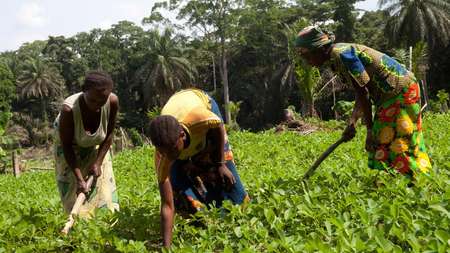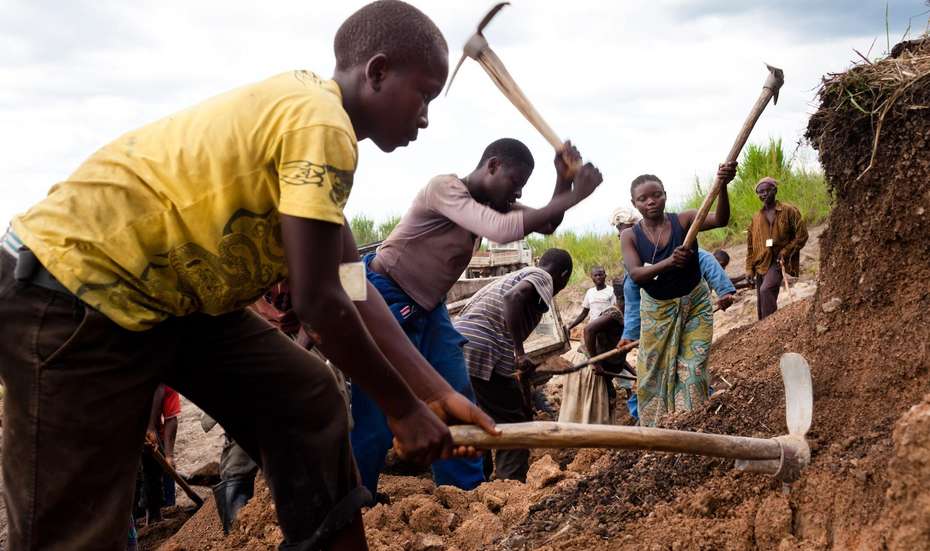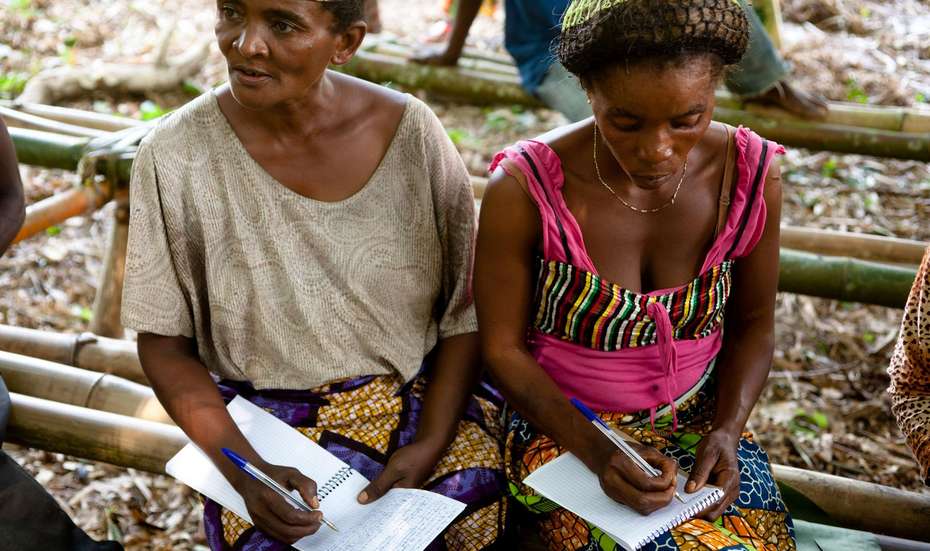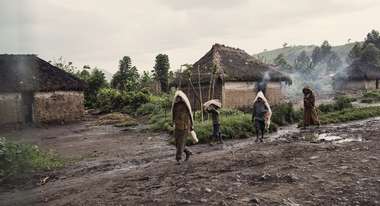
Steady Incomes Promote Peace
Lush vegetation with deep green meadows and tropical forests: Thanks to fertile soil and ample precipitation, the Democratic Republic of the Congo boasts enormous agricultural potential and could become the breadbasket of Central Africa. And yet, this is one of the world’s poorest countries. The majority of its approximately 65 million people is going hungry. Political unrest and armed conflicts with neighbouring countries and rebel groups have led to the displacement of its population and economic collapse time and time again. The unemployment rate is currently around 90 percent, and the average salary at USD 100 per annum.

The country is recovering from the effects of the violent conflicts only slowly, with sporadic flare-ups between armed groups breaking the peace. Nonetheless, residents dare to rebuild. In the impoverished province of North Kivu on the border with Uganda, Welthungerhilfe is supporting them in their effort. The goal: Making a steady food supply and income a constant in their lives again.
Cocoa and Coffee in Great Demand
In the regions of Mutwanga and Watalinga, near the Virunga national park, 55,000 smallholders cultivate primarily manioc, beans, plantains and palm oil, with some owning cocoa or coffee plantations. They produce crops that enjoy a great market demand – as long as quality and quantity are up to par.

How Welthungerhilfe Supports People in Congo
- High-quality seeds are distributed to farmers in order to raise yields.
- They are educated on innovative cultivation methods in workshops.
- Various locations will each receive four facilities to peel and dry cocoa and coffee. Proper fermentation and drying improves the quality of the cocoa.
- A 50 km-long road is being repaired. It leads to market places at which farmers sell their wares. In return for helping with construction, 5,625 are earning a temporary income.
- 120 women are establishing six tree nurseries in the region. The attend workshops to learn more about raising and caring for cocoa plants, shade trees, oil palms and papaya.
- Courses on accounting, marketing, alphabetising and nutrition and health consultations are also offered.






